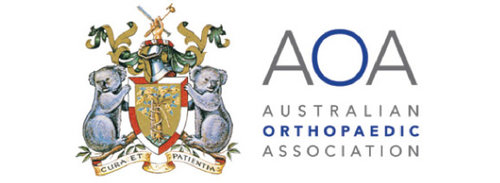Getting Back to Normal Following Knee Surgery
When can I walk without crutches?
The most important aspect of walking is that you walk without a limp, which you may have developed while protecting your knee prior to your surgery. Therefore, unless specified, you are allowed to stop using your crutches when you can walk without a limp. Your physio will advise you when you are ready to begin walking without an aid.
I can’t sleep – what can I do?
Sleep disturbance is one of the most common issues after surgery. There are many reasons but suffice to say, you have had a major stress and it will take time to settle back into a sleep pattern. Most patients return to their normal sleep patterns after 3–6 months with steady improvement throughout that time. It’s important to have good sleep hygiene, good pain relief and good swelling management to improve your sleep.
Over-the-counter sleep aids and melatonin can be useful, but these are not as important as the above points. Simple sleeping aids like a side pillow can make a huge difference if you are a side sleeper. Elevate your leg for at least one hour before you go to bed if you can.
How long before I can drive?
The medico-legal advice is 4 weeks, but we will assess your individual case depending on your recovery rate. You must have good control of your legs to allow for easy and quick transfer of your foot between pedals. Once good control is established and you are no longer on opioid medication, you can return to driving.
When can I travel?
Short journeys will be dictated as comfort allows. For longer journeys, we recommend breaks at 60-minute intervals to stretch the limb for the first 3 months following surgery.
Patients who are low risk may fly immediately after discharge from hospital. If you have a history of DVT or pulmonary embolism, we recommend waiting at least 2 weeks before flying. Wearing compression flight stockings and taking aspirin 1 day prior, during, and 1 day after your flight may reduce your risk of a DVT occurring.
Will I set off the scanner at the airport?
It depends on the sensitivity of the scanner, and you are more likely to set it off after a knee replacement than a hip replacement. Knee surgery is very common, so you do not require any documentation to go through airport scanners but you may choose to take your admission letter as proof of surgery in case you are questioned. You should let security know that you have had a knee replacement before you enter the scanner.
When can I return to work?
This depends on the kind of work you do. And every case is individual. You may find that complicated analytical work may be affected by your strong pain medications. You should also not attempt to sit for more than 60 minutes at a time, so it is best that you can break up your working day if possible. Work that requires a great deal of moving around or long periods of being on your feet should not be attempted for 6–8 weeks.
What do I do if I need dental treatment?
If emergency dental treatment is required during the first 3 months following surgery, please contact us for the recommended antibiotic cover.

